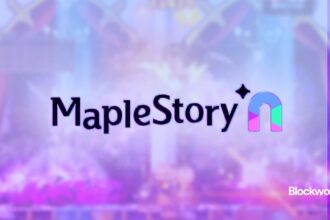Following accusations of censorship, digital storefronts Steam and Itch.io have delisted or restricted many “adult” games not explicitly tied to sexual violence or child abuse, as part of a campaign initiated by Collective Shout.
Collective Shout, an organization, sent an open letter to payment processors like Mastercard, PayPal, and Visa, aiming to persuade them to pressure game platforms globally to remove titles featuring “rape, incest, or child sexual abuse.” The strategy directly led to Steam and Itch.io’s policy shifts, with officials from Steam reacting defensively.
Storefront Removals and Provocations
In response to Collective Shout’s demands that centered particularly on the “rape simulator” “No Mercy,” Steam and Itch.io broadly removed content flagged as “adult,” though many creators argue this overreach impacted unrelated titles, including LGBTQ+ positive works.
A Steam developer, Claire Houck, stated: “Thirteen of our titles have been shadowbanned despite containing no NSFW content and not being tagged as such… Why are you censoring queer works?”
Collective Shout clarified it had not pushed for the removal of all adult content, specifically citing only games featuring particular prohibited themes, while acknowledging a planned review of all flagged material on Itch.io. Steam, however, indicated it would scrutinize all content previously reviewed by services like Collective Shout.
A “Plea” Aimed at Crypto
Despite the successes at Steam and Itch.io, Collective Shout’s spokeswoman confirmed “discussions” around pressuring cryptocurrency payment providers. The tactic underlines the increasing reliance of the gaming industry, even amid decentralization trends, on centralized payment systems.
Following the controversy, a petition opposing Collective Shout’s approach gained traction, gathering hundreds of thousands of signatures, signaling significant community pushback and raising concerns about censorship affecting marginalized groups.
Censorship, Centralization, and Cryptocurrency
Licensing therapist Moraya Seeger DeGeare argued such censorship channels fear rather than protects society, potentially harming those seeking belonging or healing through games. Conversely, experts highlight that censorship also treats users with prejudice, conflating representation of intimacy with endorsement.
Anthony Palma, head of gaming partnerships at Mysten Labs, suggested that cryptocurrency payment rails could offer a solution to future censorship by enabling autonomy from centralized platforms and payment gateways.
Addressing payment providers directly, Collective Shout stated that organizations possess the right “to determine what services they will provide for what product,” though detractors question this justification while highlighting precedents of payments being blocked over adult-related content.
It’s also worth noting that, regardless of their optimistic stance on crypto, widespread censorship on centralized platforms continues to significantly harm marginalized communities and stifle legitimate creative expression.











